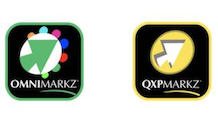Josephine Buys, CEO at The Publisher Research Council, observed that over the past few years a lot has been said about the demise of print and the perception that the traditional printed word is no longer the force it used to be.
However, it seems that we may be coming full circle as once again the written word is being used to entertain, promote and educate. This is evident when companies that are primarily focused on visual media are opting to make use of published media. Netflix for example, has announced that it will be publishing its own magazine, called Wide, to promote their own stars and programmes ahead of the 2019 Emmy Awards. The first issue is set to launch in June this year.
Buys said, ‘As the world of publishing is constantly evolving, we are seeing more innovative uses of the written word to encourage more reading. These examples are by no means a once-off, but rather a demonstration of the power of reading matter.’
A prime example of encouraging more reading takes place in London where tube commuters are able to read short stories, printed on eco-friendly paper and dispensed free by vending machines installed at Canary Wharf. Author of the short stories, Anthony Horowitz, noted, ‘What appealed to me was that I travel on the tube every single day and I see everybody buried in apps and games.’ These same vending machines have also been installed in locations across France, in Hong Kong and the US.
‘The written word provides a depth that is extremely difficult to replicate on other media platforms,’ said Buys. ‘The Publisher Research Council has made great strides in conducting research that promotes the value of reading versus listening, viewing or glancing.’
Many global studies reaffirm this with statistics proving time and time again that time spent with print media is more focused. A Newsworks survey conducted by PwC discovered that for 60% and 58% of the time spent reading newspapers and magazines respectively, readers are focused solely on that medium, concluding that a trusted medium that people choose to pay attention to is more important than ever. *
Insights from the South African Establishment Survey (ES) show that people who read earn more than their non-reading counterparts, across the entire spectrum of society. According to the ES, only half of South Africans read newspapers and magazines monthly. However, this percentage grows the higher one moves up the Socio-Economic Measure (SEM) scale. In SEM SuperGroup (SG) 5, the top 10% of the population, 77% read. This same SG also has the highest household income, demonstrating that reading is the key to success and a better life. **
Anyone who has ever studied for an exam or test knows that reading is the best way to learn, and that the longer one studies, the more familiar one becomes with the course material. Reading media, whether newspapers, magazines or online provides a depth of information unlike any other media. The ability to put it down, pick it up and assimilate information at your own pace is all too often overlooked.
‘The PRC’s online library is a rich repository of information that marketers, advertisers and media agencies can draw from,’ concluded Buys.
* https://www.printpower.eu/insight/get-the-facts-the-battle-for-attention/
PUBLISHER RESEARCH COUNCIL www.prc.za.com/pams





















